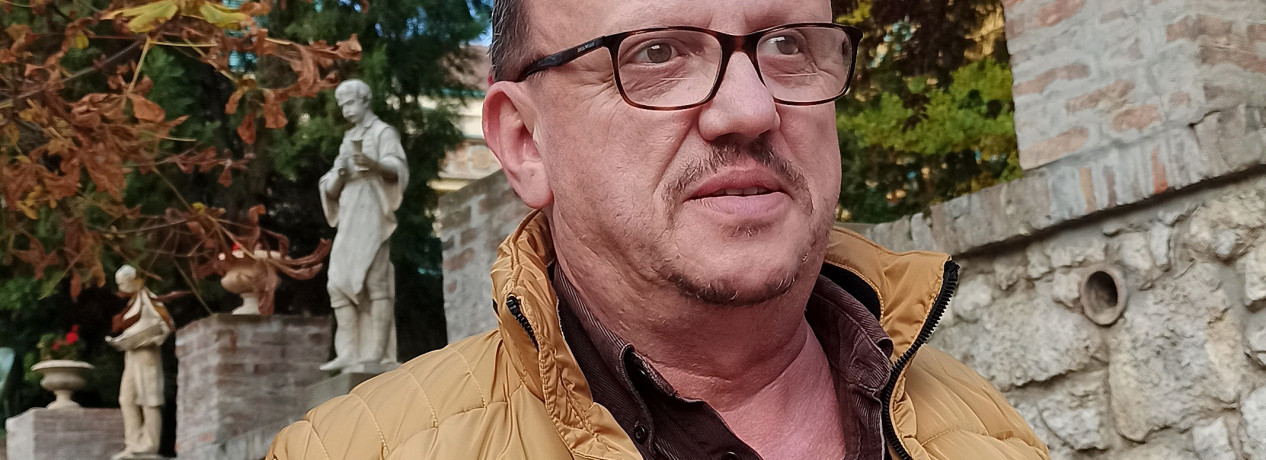Under a contract between the City of Pécs and the Hungarian Writers’ Residency Program, Albanian writer, theater director, and university professor Stefan Çapaliku was a resident of the Zsolnay Cultural Quarter Guest House.
Although your works have been published in several languages, though not yet in Hungarian, there is a strong Hungarian thread in your family's history. Can you tell us a bit about this thread?
My uncle Thoma Dardeli was at medical school in Budapest when the 1956 Revolution broke out. Naturally, he was out in the streets a great deal, since as a medic, he was trying to help the injured. Some photographs were taken of this, and his wife used them against him in their divorce proceedings a few years later, saying that she wanted to divorce him because he was an enemy of communism. In the light of the “evidence,” the Albanian divorce court was transformed into a court of martial law, and my uncle was sentenced to serve ten years in prison. When he had served the sentence, it was extended by seven years. So he told me a lot about Hungary... But he is still alive today, in good health at 91 years of age.
In its own tragic way, the question seems obvious: have you committed this story to paper?
Yes, I won a prize in an international drama competition for my play Twenty Years, Two Weeks, and Two Days, which has been translated into English and has had several premieres. In Pécs, I met director Iván Funk, and he and I discussed possibly staging the play, initially as a reading theater performance.
How have the city itself and the Zsolnay Quarter influenced you?
I have noticed something strange. The smaller the town I am in as a writer in residence, the better I write. The first time I was a writer in residence was in New York, some twenty years ago, and I wrote almost nothing. Then came Paris, Vienna, Split, and each time the writing went better. Here in Pécs, I could actually write a whole novel in a month, though it’s true that I had done a great deal of the preparatory work. The novel is about an Albanian composer who was also imprisoned by Enver Hoxha, but he was always released for a time during the day to write in his own apartment and praise communism. For the most part, I wrote in the mornings, and then I would stroll in the city and get to know it and the people and enjoy the autumn in the Quarter. There is a huge tree outside the window of my room: when I first arrived, it was still full of yellow leaves. Now that I’m leaving, there are hardly any left...
What surprised you the most about Pécs, something that you're sure to remember for a long time?
It was definitely a surprise to find an Albanian Honorary Consulate here and to meet Consul Hafuzi Avnija, a very nice person. It was an honor to be invited to the wreath-laying ceremony at the cemetery for the graves of the heroes of the First World War and to lay the wreaths with him in memory of the Albanian soldiers. The other thing, which is really more just a pleasant surprising detail for me, is that it turns out that the local kadarka wine comes from my hometown, Skodra. The Serbian name of the town is Skadar, and the Hungarian soldiers stationed there during the time of the monarchy brought the grapes that were used to establish the (s)kadarka in Hungary. And as you can imagine, I tasted several of them, from four different vineyards.

